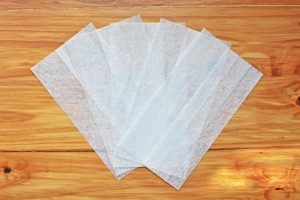The ’80s Are Back — But Comparatively, Mortgage Rates Are Still Totally Rad!
Have you noticed the fashion trends of the 1980s are finding their way back to department store racks and online shopping sites? ’80s fashion has seen a recent resurgence, perhaps due to current pop culture hits like Stranger Things and retro fashion videos on TikTok.
You may be hoping that mortgage rates won’t see the absurd highs of the ’80s. Although the average for that decade was 12.7%, rates in the ’80s topped out at 18.45%. Yikes!
One thing to note is that although the 18% rate is unthinkable now, home prices were considerably lower back then. With today’s rates higher than recent years, we’re also seeing lower asking prices by sellers. Gone are the insane bidding wars that raised prices by tens of thousands during the pandemic. The market tends to self-correct whenever possible.
The other concern is for sellers and real estate agents to be realistic about their pricing. We recently saw a home sale where they needed to adjust down considerably either due to poor market research or homeowners trying to bring in maximum dollars. Case in point, a home that recently sold:
- Oct 1: listed at $1.2 Million
- October 20: dropped to $999K
- November 1: dropped again to $950K
- November 15: accepted offer of $850K
Real estate agents have a responsibility to educate their buyers and sellers on how to set proper pricing. Most are educated and aware of up-to-the-minute changes. The example above shows a home that was not correctly priced and it may have cost the seller several thousand dollars because of it.
Remember to choose wisely when selecting your real estate agent. If you need a recommendation, just ask!
* * * * *
If you’d like to chat about mortgage options, please call me at 617-965-1236. If you’re planning to buy this year, let’s talk soon. I look forward to speaking with you.
Ready to buy a new home or refinance the one you own? Please get in touch and I’ll be happy to answer your questions and help guide you through the process. I look forward to speaking with you.
Top Selling Songs and Top Grossing Movies of the 1980s By Year
1980
Song: Call Me by Blondie
Movie: Star Wars: The Empire Strikes Back
1981
Song: Bette Davis Eyes by Kim Carnes
Movie: Raiders of the Lost Ark
1982
Song: Physical by Olivia Newton-John
Movie: E.T.
1983
Song: Every Breath You Take by the Police
Movie: Star Wars: Return of the Jedi
1984
Song: When Doves Cry by Prince
Movie: Indiana Jones & the Temple of Doom
1985
Song: Careless Whisper by Wham! featuring George Michael
Movie: Back to the Future
1986
Song: That’s What Friends Are For by Dionne & Friends
Movie: Top Gun
1987
Song: Walk Like an Egyptian by The Bangles
Movie: Fatal Attraction
1988
Song: Faith by George Michael
Movie: Rain Man
1989
Song: Look Away by Chicago
Movie: Indiana Jones & the Last Crusade
BONUS!
Top Album: Thriller by Michael Jackson
Bestselling novel: Clear and Present Danger by Tom Clancy
Top TV Show: Dallas
Home Improver: ’80s Decor Is Trending
 Floral wallpaper, pastel sofas, lucite chairs and more are back in style as 1980s home decor trends have returned. Call it Miami Vice Revisited or Golden Girls Chic, these ’80s decor trends are making a big comeback to homes across the US.
Floral wallpaper, pastel sofas, lucite chairs and more are back in style as 1980s home decor trends have returned. Call it Miami Vice Revisited or Golden Girls Chic, these ’80s decor trends are making a big comeback to homes across the US.
- Return of Pastels. We’re seeing more of this trend on sofas than anywhere else in the home. Light blue or green sofas with pink or blue solid, patterned or striped accent pillows.
- Chintz and Floral Patterns. French-inspired decor and aesthetics are trending on social media. Chintz is a delicate, floral-printed cotton that is primarily used for curtains and upholstery. Wallpaper with big earthy, leafy prints is also on the rise.
- Brass is Back. Some would argue that brass never went out of style, but most bathrooms since the ’90s have favored brushed chrome or darker colors.
- Lucite Accents. Remember lucite? it’s a thick, clear plastic used in furniture and accessories. It adds a clean, modern look to rooms and is commonly found on barstool seats, lamps, and shelving units.
- Wicker Lives! Most of us got rid of all traces of wicker by the ’90s. But wicker is the oldest furniture making method in history, so you had to expect it to make a comeback.

 These room refreshers have come a long way in recent years and they are reasonably priced for what they do. When used properly they can reduce household odors as well as common allergens that make you sick.
These room refreshers have come a long way in recent years and they are reasonably priced for what they do. When used properly they can reduce household odors as well as common allergens that make you sick. What’s the best way to clean your carpets? Everyone has an opinion: steam, shampoo, cold water, hot water, etc. But other variables exist as well: call in a professional, rent a machine, hands-and-knees scrub, and more. The fact is, any of these methods will leave your carpets cleaner, but what are the risks involved?
What’s the best way to clean your carpets? Everyone has an opinion: steam, shampoo, cold water, hot water, etc. But other variables exist as well: call in a professional, rent a machine, hands-and-knees scrub, and more. The fact is, any of these methods will leave your carpets cleaner, but what are the risks involved?
 Freshen Up Your Gym Bag. A good workout can lead to unwanted odors that get trapped inside your gym bag, only to burst forth the next time you open it. Even the cleanest bag can get a little funky, so drop a few dryer sheets in it to neutralize odors. Pro tip: stick them in your sneakers to minimize foot odor.
Freshen Up Your Gym Bag. A good workout can lead to unwanted odors that get trapped inside your gym bag, only to burst forth the next time you open it. Even the cleanest bag can get a little funky, so drop a few dryer sheets in it to neutralize odors. Pro tip: stick them in your sneakers to minimize foot odor. It’s been an odd February with temperatures close to zero some days, 65 this week, and another snowstorm heading to us tomorrow. This made us think about curtains and their function. Why? Read on.
It’s been an odd February with temperatures close to zero some days, 65 this week, and another snowstorm heading to us tomorrow. This made us think about curtains and their function. Why? Read on. The fact is, adult moths don’t eat clothing. I know, we’re shocked! How can this myth have survived for generations and, more to the point, what exactly is eating holes in your beautiful cashmere (or wool) sweaters?
The fact is, adult moths don’t eat clothing. I know, we’re shocked! How can this myth have survived for generations and, more to the point, what exactly is eating holes in your beautiful cashmere (or wool) sweaters? With 70% of the state of Massachusetts having had at least one COVID-19 vaccination, we are one of the highest vaccinated states in the country. That’s good news for gatherings. But if like most families hosting events, you’re probably not going to ask for proof of vaccinations as you welcome them into your home. So be safe, but have fun.
With 70% of the state of Massachusetts having had at least one COVID-19 vaccination, we are one of the highest vaccinated states in the country. That’s good news for gatherings. But if like most families hosting events, you’re probably not going to ask for proof of vaccinations as you welcome them into your home. So be safe, but have fun. Non-perishable foods. Local food pantries are always in need of non-perishable items. If you have canned goods you’ll probably never use as you clean out the cupboard, you can always donate them to a
Non-perishable foods. Local food pantries are always in need of non-perishable items. If you have canned goods you’ll probably never use as you clean out the cupboard, you can always donate them to a